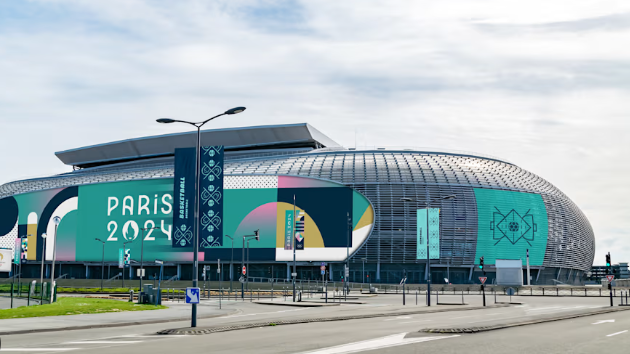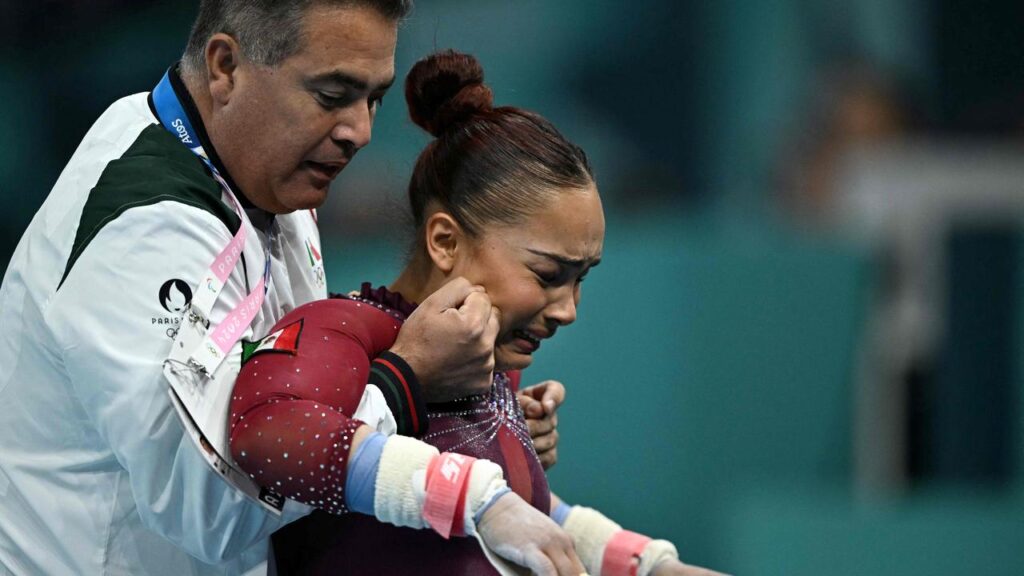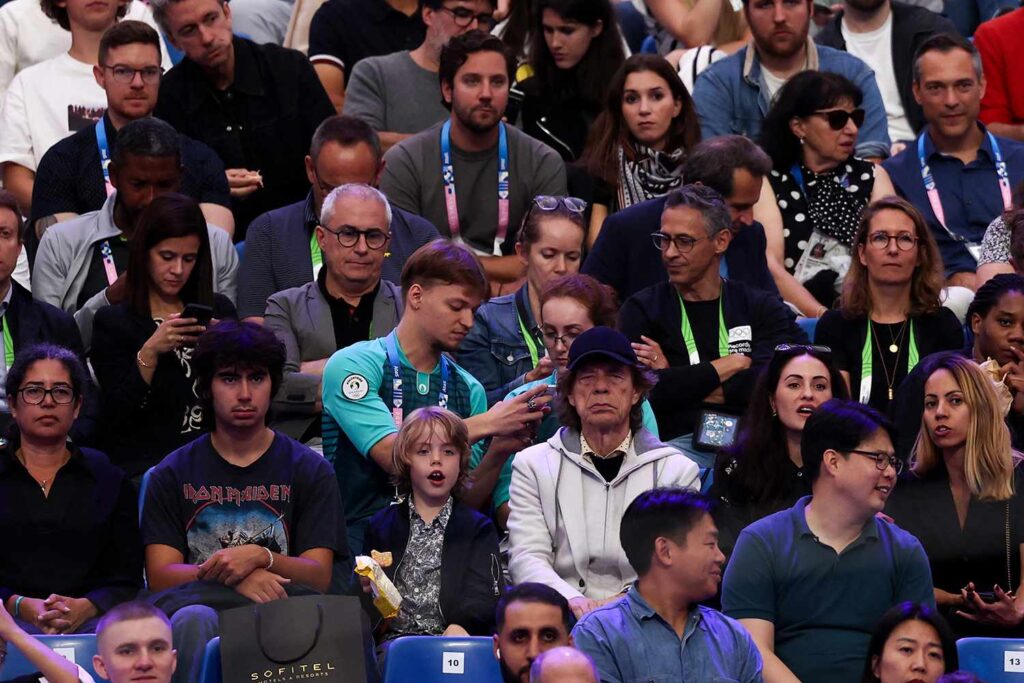Paris ‘Starts Up’ Games as Olympics Moves from Ceremonies to Sporting Celebration & Satisfaction
August 1, 2024
As the Paris Games approaches the weekend half-way mark, Olympic advisor MICHAEL PIRRIE evaluates the impact of global mega event.
Mick Jagger may have missed the Opening Ceremony, but rock’s long-distance runner and Olympic fans have found satisfaction over recent days in Olympic venues that have resembled sporting concerts at the Paris Games.
Jagger has joined a cavalcade of celebrities at sporting venues across Paris as the Olympic vibe fills the host city with a soundtrack echoing songs from a Rolling Stones play list, making fans feel ‘Happy.’
Wild horses could not keep fans from filling equestrian and all other sporting venues across the city and regional areas.
Moving like Jagger, athletes have started up the Games with epic performances to sellout crowds.
Shortly after London won the blockbuster battle to host the Olympic Games in 2012 over Paris, New York, Moscow and Madrid, Jagger sent a note to bid leader, Seb Coe, offering congratulations and support for London’s Games.
While Jagger has been seen at fencing, the ‘Street Fighting Man’ is also a boxing fan and may attend some rounds.
His presence has also sparked speculation of a possible performance later at the Games in the Closing Ceremony.
France has fallen in love with the Games that has sometimes danced to a different drum beat in Paris.
A clearer view of the French version of the Games that has challenged Olympic traditions and expectations is emerging through the murky waters of the Seine just in time for the triathlon.
France is staging electrifying Games reflecting the nation’s spirit of revolution and creativity while building on the London and Sydney Games models.

While the opening ceremony was unconventional in its river location and, for some international audiences, its depiction of some aspects of French history and culture, subsequent polling has revealed overwhelming domestic support for the curtain raiser.
The domestic endorsement indicates Paris organisers have been able to replicate the success of Danny Boyle and Ric Birch, and the widely acclaimed London 2012 and Sydney 2000 Olympic opening ceremonies they directed respectively, and which set the stage for the success of both benchmark Games.
This heralds a major turning point for Paris organisers.
Opening ceremony success is essential to how cities and nations feel about themselves and about hosting and supporting the Olympics at Games time.
Walking down the exit aisles of the London Olympic stadium after the opening ceremony in 2012, I recall excited spectators expressing how they had ‘never felt so proud to be British’ as the ceremony ended.
We knew we had passed the first major challenge to deliver the London Games we hoped would inspire a nation as well as a generation.
Similar post ceremony momentum is now driving Paris and the wishes of French President Emanuel Macron for flawless Olympic Games.
“Our organisation needs to be beyond reproach,” Macron said at the start of the year, referring to the Paris Games, which has become as much a landmark project in his presidential portfolio as the Eiffel Tower that anchors the Games.

As well as perfect organisation, Macron is also relying on the continued success of French athletes.
If Paris landmarks were the stars of the opening ceremony, the athletes are now putting on equally compelling performances to full house audiences.
“I count on you not only to bring medals but to inspire the youth. Do your best,” Macron said in his New Year Games countdown speech.
The athletes from France and other competing nations are inspiring the world and the host nation in different ways.
Like a Rolling Stones concert, there has been much rhythm and blues as the nation of ‘Les Bleux’ rallies around the Games.
France’s rapid rise up the medal table is a dream for Macron, who has championed the Olympic event and invested much time, resources, and national pride in the Paris project.
The host nation’s growing daily medal tally is creating a party atmosphere inside the Paris venues and in communities, cities and homes across France, a hallmark of triumphant Games.
This reflects the importance of host city sporting success and the targeted funding and planning that French authorities have put into long term high-performance training pathways to help athletes peak at the Games.
Paris, with packed venues and more than 8.6 million tickets sold, is also reviving the full Olympic Games experience lost in isolated and empty venues during Covid.
This is important for future IOC revenues and deals with commercial partners and sponsors and funding for future host and preferred cities.
While Covid almost stopped the Games during the pandemic and still remains a lingering threat, the sporting atmosphere in Paris has been infectious.
The vivid blue, white and red colors of the French flag that formed a spectacular curtain of smoke across Austerlitz Bridge in the opening ceremony has now enveloped the nation in the Olympics.
The Games have returned higher, faster, stronger and louder in venues set at full volume for the first time since London.
Like the high-end Opening Ceremony production values, Paris is also producing sporting masterpieces worthy of a place in the Louvre.
Every Olympic host needs a national hero and swimmer Leon Marchand has been a gold medal magnet for France, capturing the imagination of everyone and turning curious observers into Olympic super fans they did not know they were.
In what may prove to be the performance of the Games, Marchand stunned the sporting world by winning two individual gold medals in breaststroke and butterfly in one surreal session of wonderous swimming
The Olympic spirit has also returned, with performances that did not win medals but deep acclaim and admiration instead from global audiences, which have become a ratings bonanza for host broadcaster NBC up almost 80 per cent from Tokyo.
These performances involved athletes who did not touch gold but who touched and reminded the world of the essence of the Olympic Games as a microcosm of life.
Athletes such as Natalia Escalera, the young debutant gymnast from Mexico, who pushed herself through searing pain to complete a routine for her country down after rupturing a ligament in her foot
The distraught gymnast, who had to be carried in tears by her coach to a nearby chair and condoled, said on social media she was grateful just so she “could represent my beautiful country.”
“I am so grateful to God for giving me the strength to show up and endure my last routine.”
The young athlete’s determination to finish for her country would conjure memories of John Stephen Akhwari, the legendary Tanzanian long distance runner who struggled with cramp and injuries from a fall in the 1968 Mexico marathon, but still completed the event in a darkened stadium more than an hour after the winner.

When asked by stunned media why he continued after his fall, Akhwari famously said: “My country did not send me 5,000 miles to start the race, they sent me 5,000 miles to finish the race.”
Paris organisers are also putting in compelling performances dealing with the hidden complexity of keeping the all-important broadcast and competition schedules on track for 11,000 athletes from more than 200 nations across in 32 world sporting competitions.
This vast organisational challenge has been carried out while on full security alert for further possible attack from hostile groups and nations, including Russia, following a sabotage attempt of a central train system in the countdown to the opening ceremony
Planning for Paris has been at a high level if perhaps not always impeccable as President Macron may have decreed.
The complaints have included concerns about conditions in the Athletes Village as challenging for some athletes to perform at their best
The organisers have responded quickly to the almost boundless array of venue and service operations and diplomatic and geopolitical issues that can impact the Games.
Russia’s reduced presence at the Games, due to restrictions on athletes following the Ukraine invasion, has limited its impact on other teams and nations.
The spectre of doping involving Russia however continues to darken sports landscapes, with Olympic authorities stripping the super power of a figure skating gold medal from the Beijing Winter Games and presenting it to the US team in Paris
Doping concerns and suspicions have shifted to China following a series of controversial drug testing irregularities involving Chinese swimmers, some of whom were selected for Paris.
Ukraine’s first medal at the Games, by fencer Olga Kharlan, was dedicated to fellow Ukrainians defending the country against Russia.
The Ukraine team’s presence in Paris is a powerful symbol of its existence as a nation on the world stage.
Ukraine is also a symbol for other nations and groups in adversity who are invisible on the medal table but victorious just by having a delegation at the Games.
Paris has created a grand stage for athletes who are performing at awe inspiring levels as symbols of hope despite the war in Ukraine, Middle East violence, and other combat zones.
Pierre de Coubertin, the father of the modern Olympic Games, was born in Paris, and would be proud of how his home city is taking the world on a journey of hope from war to sport, as he dreamed.


